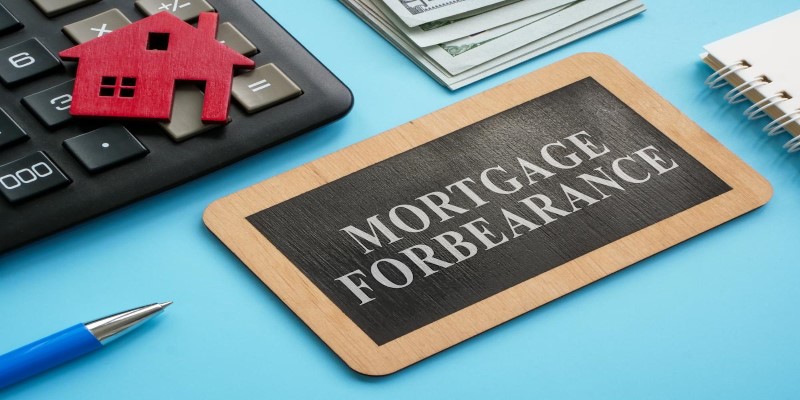The journey to homeownership is different for everyone, but for single mothers, it often feels like a steeper climb. Juggling the responsibilities of raising children, managing household expenses on a single income, and building a stable future can make the idea of buying a home seem out of reach. Yet, more single mothers are stepping into homeownership with confidence, determination, and the right information.
Understanding the financial tools and housing programs tailored for them can turn what seems like a distant dream into a very real opportunity. This article breaks down how single mothers can access home loans and what they need to know every step of the way.
Understanding the Financial Landscape
When a single mother starts thinking about buying a home, the first challenge is often financial qualification. Lenders typically evaluate credit scores, income, existing debts, and employment stability before approving a loan. For someone supporting a household on one paycheck, these criteria can feel intimidating. However, many lenders understand the unique circumstances of single-parent families and offer flexibility within their underwriting standards.
One of the first steps is reviewing your credit report. Even small improvements in credit scores can lead to better interest rates, which reduces long-term costs. A steady job history and consistent monthly income play a critical role in the loan approval process. If the income isn't sufficient on paper, including child support or alimony (where applicable and documented) can sometimes help strengthen the application.
Saving for a down payment is another significant hurdle. While 20% is the traditional recommendation, it's far from mandatory. Many loan options today require far less upfront, and assistance programs can help cover part of the cost. What's important is to prepare a realistic budget—not just for the mortgage itself, but for the ongoing costs of homeownership, such as maintenance, insurance, and property taxes.
Exploring Government and Nonprofit Housing Support
Fortunately, there are multiple resources designed to ease the homebuying process for single mothers. Federally backed loans, for example, have features that are particularly helpful. FHA loans are among the most accessible, requiring just a 3.5% down payment and offering lenient credit requirements. USDA loans serve those in eligible rural areas and can offer zero-down financing. VA loans are an option for eligible veterans or surviving spouses and come with competitive benefits.

Beyond these federal options, many states and municipalities offer first-time homebuyer programs, often with a focus on single parents. These may include grants that don’t have to be repaid, down payment assistance in the form of low-interest loans, or tax credits to help make monthly mortgage costs more affordable.
Local nonprofits can also be a valuable ally. Some offer financial literacy training, housing counseling assistance, and even matched savings programs that multiply your contributions toward a down payment. These programs often have income limits or other eligibility requirements, but they can be a powerful stepping stone.
Understanding what's available in your specific region is essential. Housing counselors approved by HUD (the U.S. Department of Housing and Urban Development) can provide guidance at no cost and help create a detailed action plan tailored to your specific situation.
Choosing the Right Type of Loan and Lender
Once a single mother is ready to move forward, selecting the right home loan is key. There’s no one-size-fits-all mortgage. Fixed-rate loans provide stability with a consistent monthly payment, which can be reassuring when budgeting for a family. Adjustable-rate mortgages may start with lower rates, but they carry more risk if interest rates increase.
Comparing lenders is just as important as choosing the type of loan. Some lenders have programs or underwriters with specific experience assisting single-parent households. It’s worth speaking with multiple institutions—such as credit unions, banks, and online mortgage companies—to understand which one offers the most competitive terms and best customer support.
Ask questions about pre-approval timelines, closing costs, and whether they partner with any down payment assistance programs. A good lender should be willing to explain everything clearly and patiently without relying on complex jargon.
Be wary of loans that sound too good to be true or those with high origination fees and unclear terms. Transparency matters. Also, take the time to get pre-approved before house hunting—it strengthens your negotiating power and shows sellers that you’re a serious buyer.
Building Long-Term Stability Through Ownership
Homeownership isn't just about having a place to live—it's a step toward long-term financial security. For single mothers, it can mean more than just stability. It can be the foundation for building generational wealth and setting an example of independence and perseverance for their children.

However, it’s crucial to approach this milestone with clear eyes. Emergency savings should be in place for surprise repairs. Consider the cost of utilities, home insurance, and annual taxes when determining affordability. Stretching your budget too thin to buy a home can lead to stress down the road.
There’s also value in looking for homes that may need some cosmetic updates but are structurally sound and located in good school districts or close to work. These often come at a lower price and can be updated over time, helping stretch your investment further.
Staying informed and engaged after the purchase is just as vital as preparation. Programs exist for homeowners who run into difficulty—whether it's temporary job loss or medical expenses. Knowing your rights and having a support network can help prevent issues before they become major setbacks.
Owning a home as a single mother is not without its challenges, but it’s far from impossible. With strategic planning, support, and smart decision-making, it's a goal that many women have achieved—and continue to.
Conclusion
The path to homeownership can be complex, especially for single mothers balancing family life and financial limits. But with the right preparation and guidance, it's within reach. From understanding your credit and income to finding the right loan and lender, each step builds a foundation for a stable, independent future. Home loans designed for single mothers aren't charity—they're tools that reflect real-life needs and support long-term housing solutions. By using available resources, staying informed, and moving forward with confidence, single mothers can claim not just a house—but a home, stability, and future investment.












